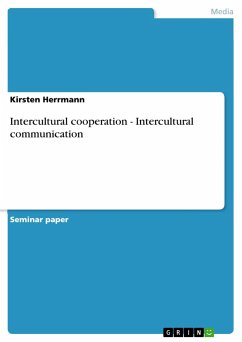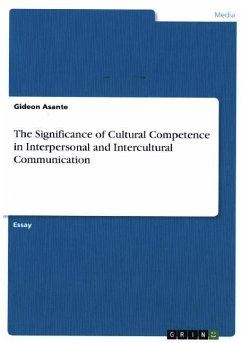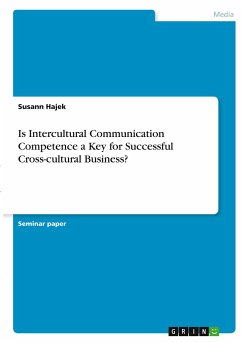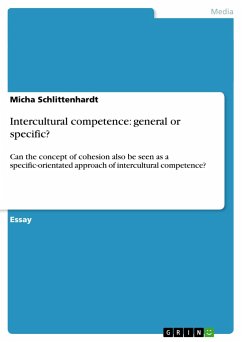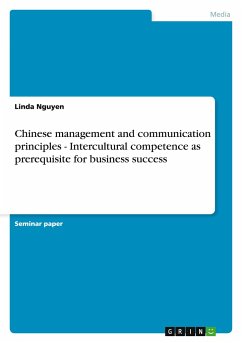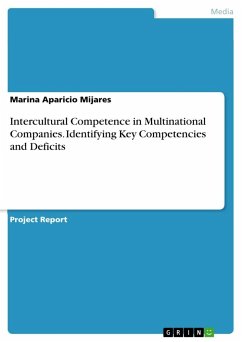Seminar paper from the year 2006 in the subject Communications - Intercultural Communication, grade: 2,0, University of Applied Sciences and Arts Hildesheim, Holzminden, Göttingen (Arbeitsgruppe Fremdsprachen), course: Seminar: Intercultural Competence, language: English, abstract: "The globalization of markets and information networks has made consumption patterns and culture more uniform. Two developments are seemingly moving toward the opposite directions: an increasing uniformity of every-day culture on the one hand, and a drive to retain elements of individual cultures, on the other (University Witten/Herdecke, International society for Diversity Management (IDM), 2006)". The IDM claims that social and organizational change is accelerating exponentially. There is a constantly search of identities through experience the differences. "Global cultures" in contemporary societies are constantly being challenged to meet this demand. Recognition and respect are requested to meetthis differences. To face these requirements the following paper will discuss the meaning of intercultural competence. To underline the development of intercultural research the author will discuss the findings of Hofstede. Second the discussion will lead to the more contemporary aspects of intercultural competence such as Milton Bennett. In his theories about communication he points out the core set for global leadership in cross cultural contact. This chapter will focus especially on intercultural communication. The conclusion will lead the reader to future aspects of diversity management. "The world is full of confrontations between people, groups and nations who think, feel, and act differently (Hofstede, 1991, p.3)." Following the news and the establishing conflicts with the Arabian world and the West, his statement is still actual. Already in 1991 he postulates the demand of cooperation for solution of common problems like ecological, economical, military, hygienic, andmeteorological developments which do not stop at national or regional borders (ibid.).
Hinweis: Dieser Artikel kann nur an eine deutsche Lieferadresse ausgeliefert werden.
Hinweis: Dieser Artikel kann nur an eine deutsche Lieferadresse ausgeliefert werden.

